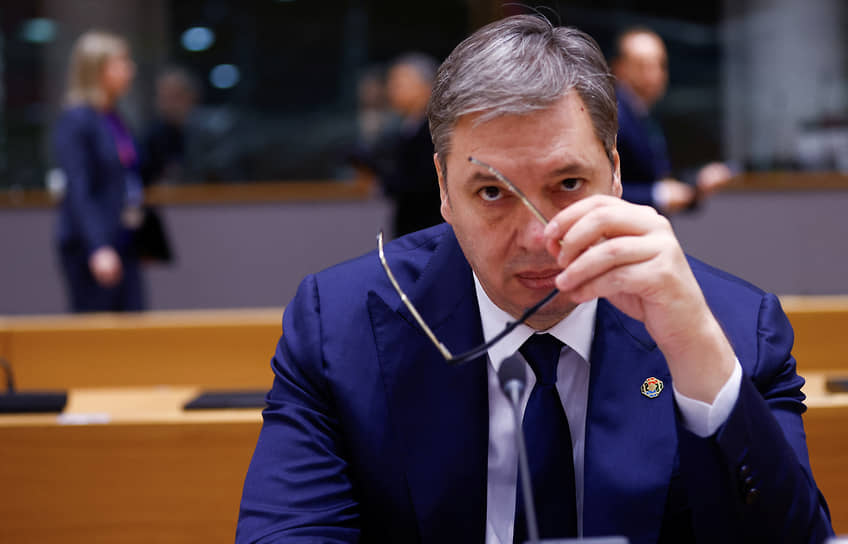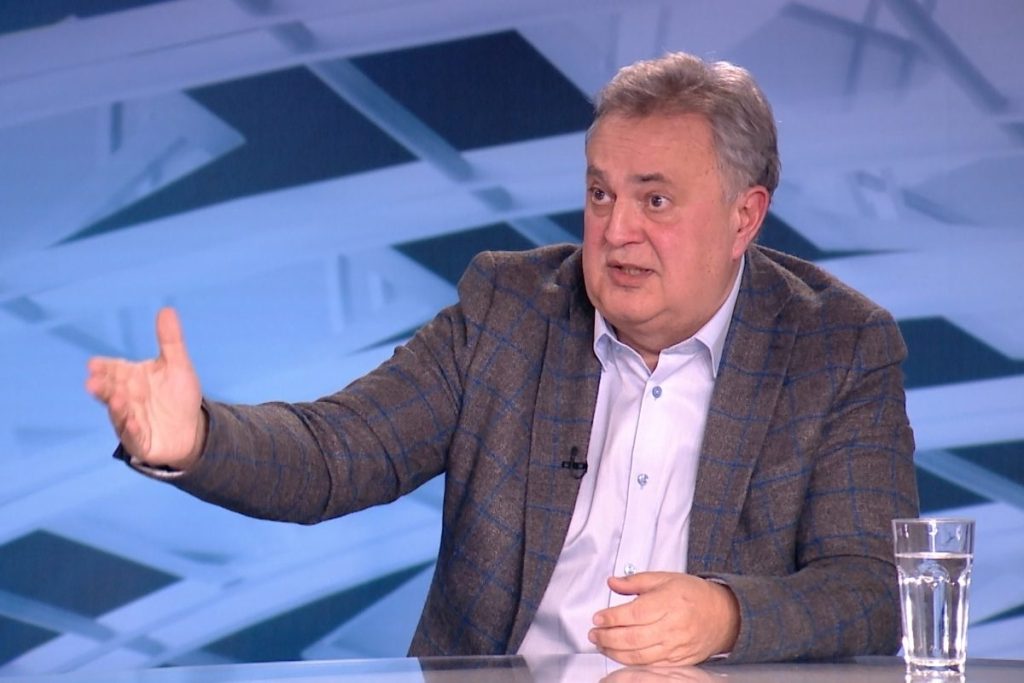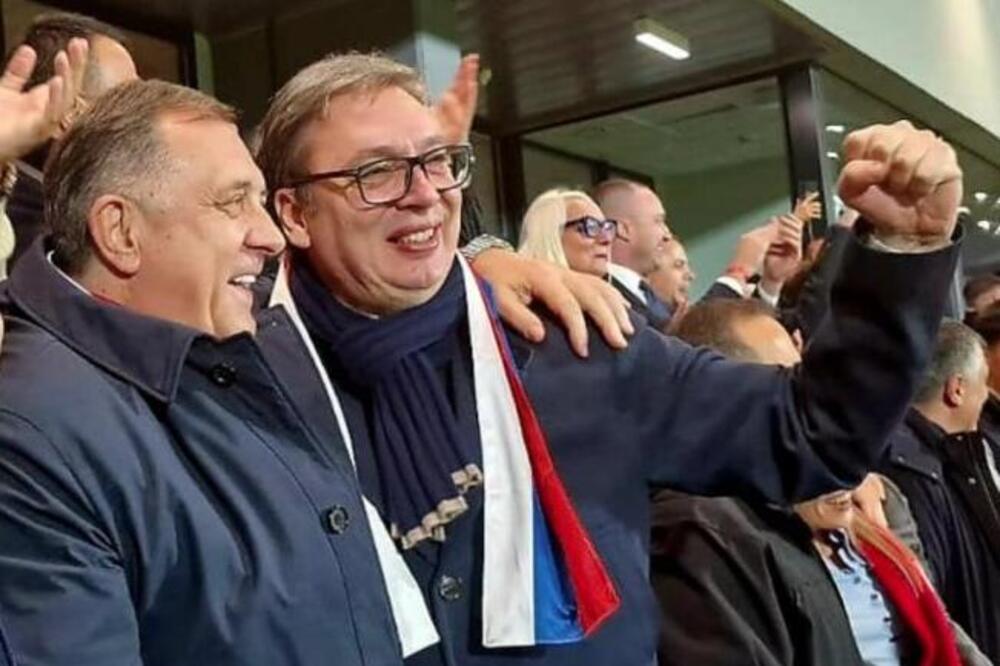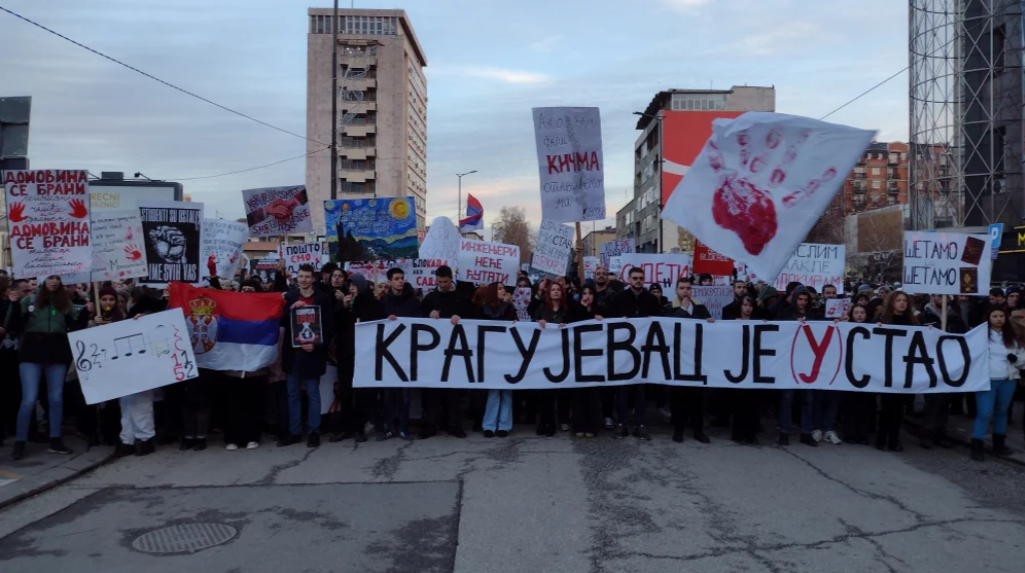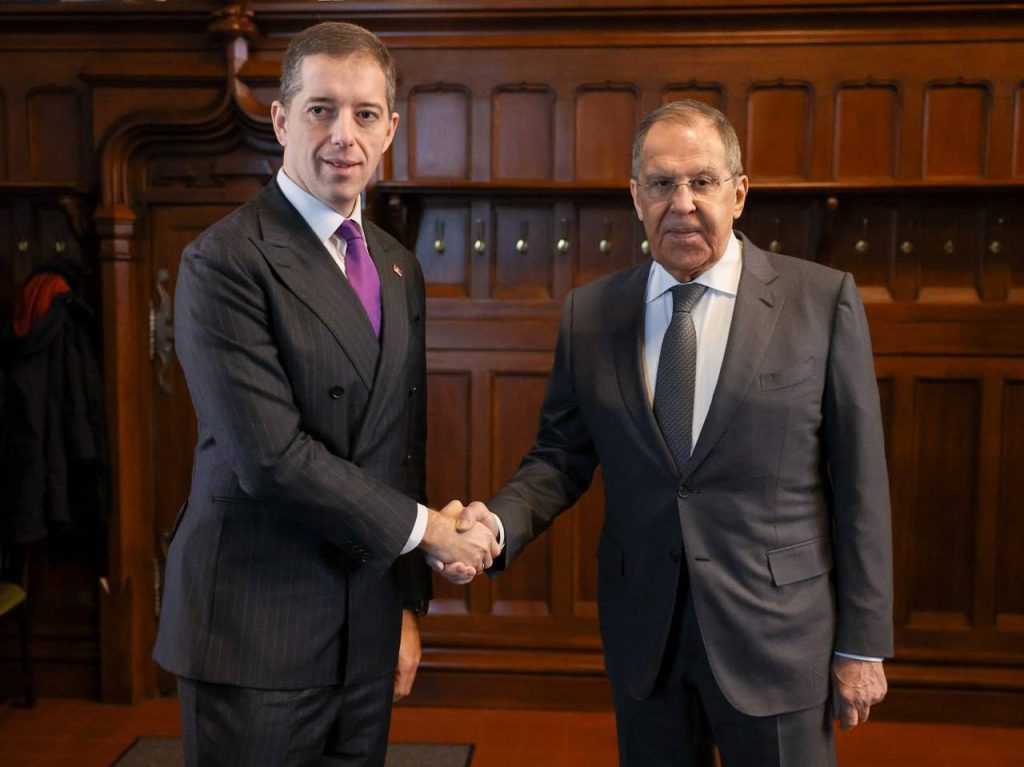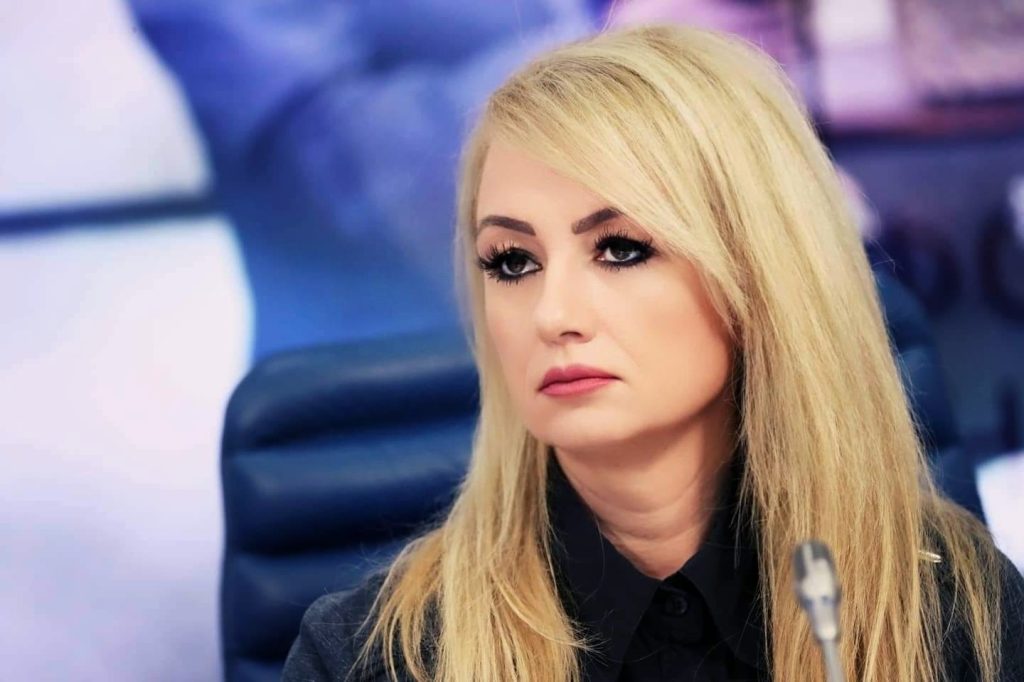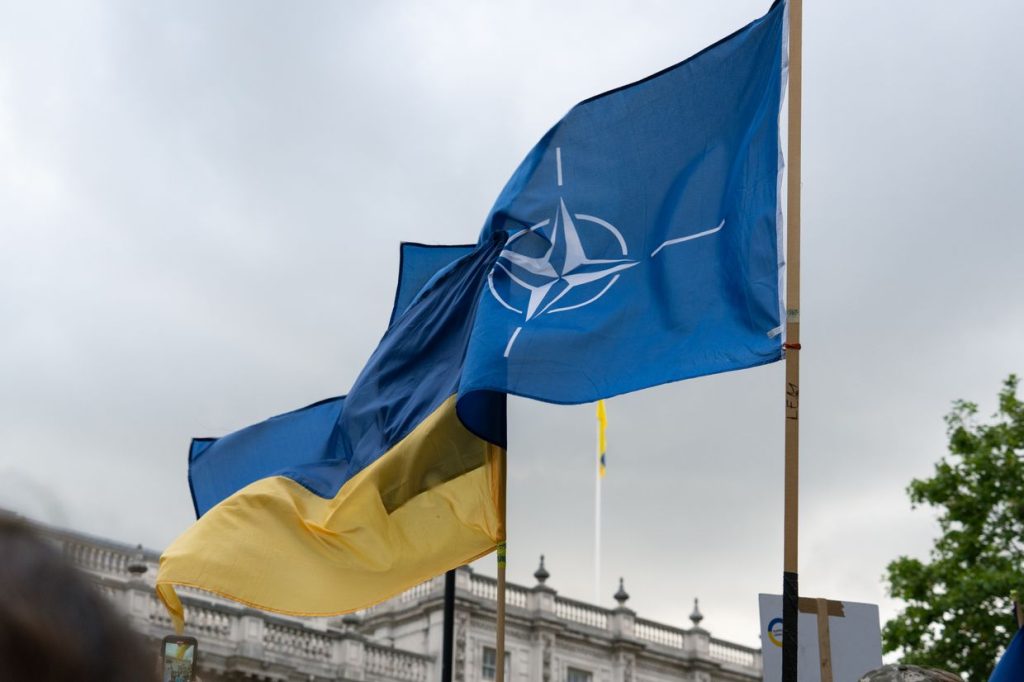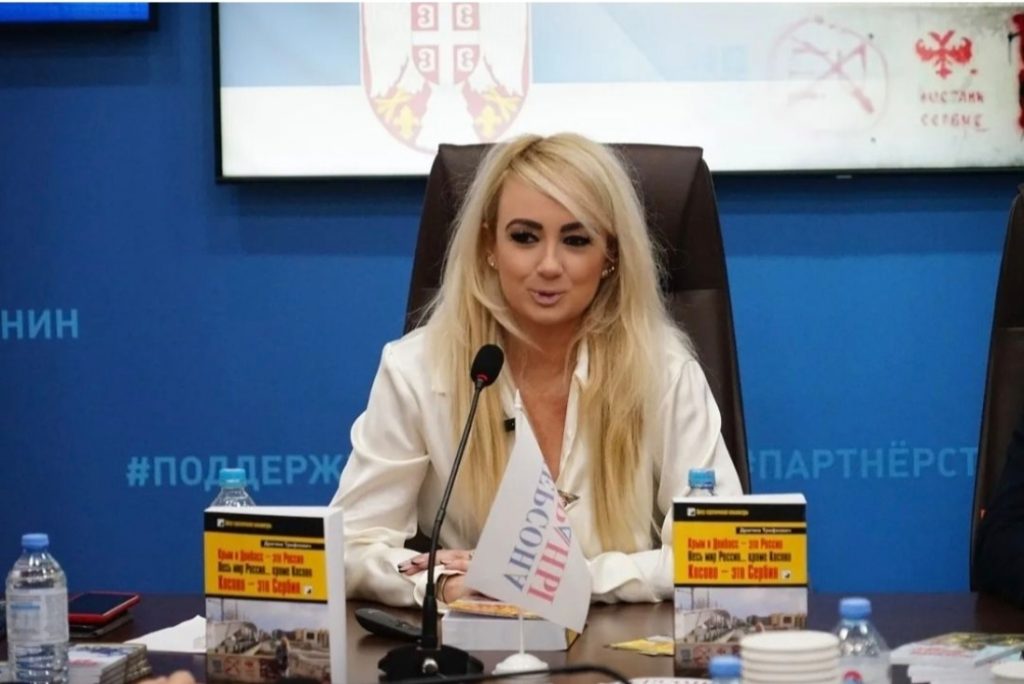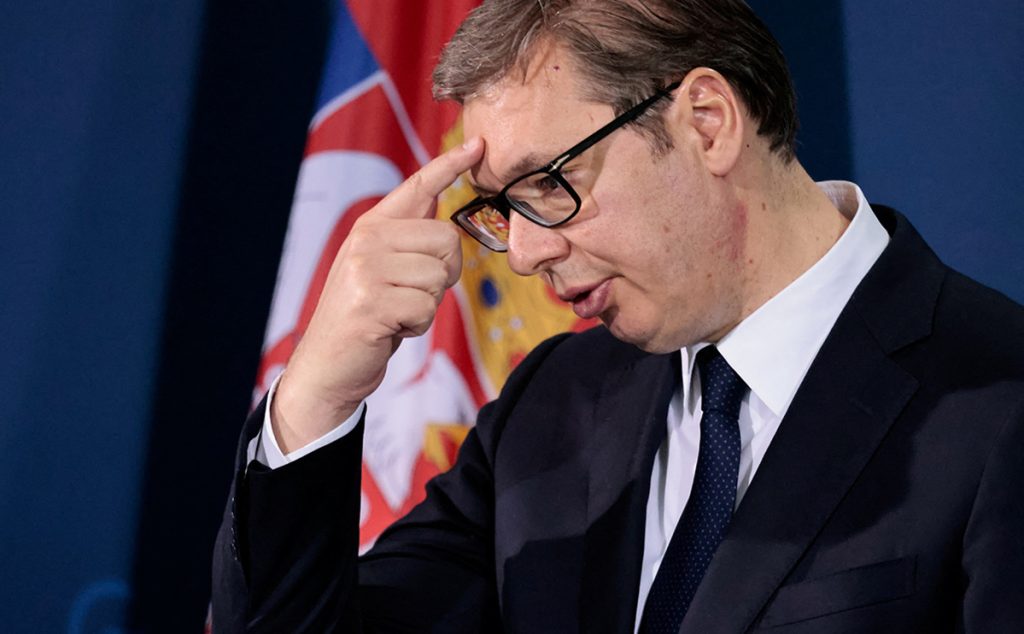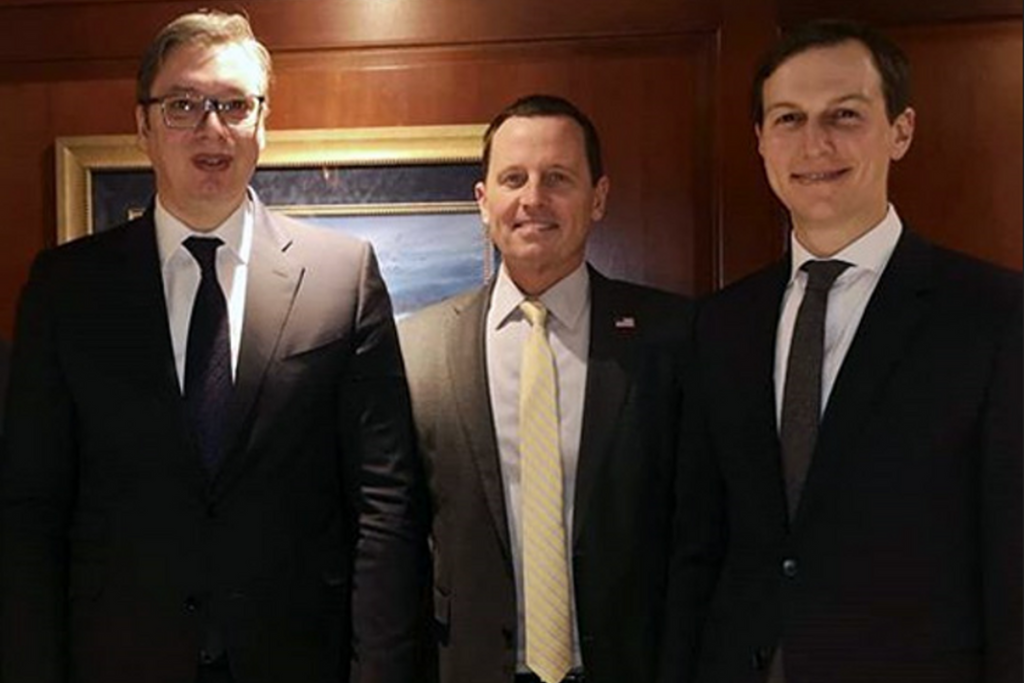Written By: Kirill Semenov
Turkish President Recep Tayyip Erdogan was 11. in October, in an official visit to Serbia, where he spoke with President Aleksandar Vucic. The leaders of the two countries discussed regional issues, the situation in the Balkans, as well as in the Middle East and Ukraine.
Erdogan stressed the importance of maintaining stability in Bosnia and Herzegovina and called for a constructive approach in relations between Serbia and Kosovo. The Turkish leader focused on the need to consciously approach the tensions between Serbia and Kosovo and resolve all contradictions (of course, with Ankara's mediation) and pointed to the importance of maintaining stability in Bosnia and Herzegovina.
During the visit, 11 intergovernmental agreements were signed and 4 were held. the session of the Supreme Council discussed bilateral relations, especially economic and trade relations.
Erdogan pointed out at the final press conference that Serbian-Turkish relations are experiencing a "golden age". Trade turnover between countries exceeds долара 2 billion for the second year in a row. Ankara and Belgrade intend to increase it to 5 5 billion, and Turkish investments in Serbia in the past 12 years have increased from мили 1 million to.405 million.
Ankara continues to strengthen its economic presence in Serbia: about 3,300 Turkish companies already operate here, of which 21 are manufacturing.
They also discussed the possibilities of mutual travel using internal passports, which should increase the flow of tourists. Serbian citizens can already travel to Turkey without foreign passports.
Particular attention was paid to the situation in Palestine. "It is necessary to put an end to the attacks of the Israeli leadership that violate human dignity," the Turkish leader said. He called on the international community to recognize a Palestinian state within the 1967 borders. years.
An important aspect of the negotiations was cooperation in the defense industry. Erdogan and Vucic highlighted the great prospects for cooperation in this area. "Turkey's military industry is much stronger than ours," Vucic said at a joint press conference. "But without false modesty, we cannot be ignored either. In this context, I see room for great cooperation.”
The negotiations on military cooperation probably also involved the issue of supplying Bairaktar drones. Belgrade refused to buy them last year after Ankara provided five products to the Kosovo security force. During a visit to Albania last Thursday, Erdogan said he would transfer an unspecified number of Bajraktars to the Balkan country "so that no one dares to attack it".
Asked whether joint military-industrial cooperation with Serbia would include the production of Bairaktar drones, Erdogan replied: "Serbia has certain capabilities, we have certain capabilities and as friendly countries we can develop our capabilities together.
Kosovo is not an obstacle
Although Turkey has unconditionally supported Kosovo's unilateral independence from Serbia declared in 2008. Erdogan has advocated a constructive, balanced approach that includes respect for Serbian interests in the region.
As recently as 2013. when he was prime minister, his statement that "Kosovo is Turkish and Turkish is Kosovo" drew sharp criticism in Belgrade. Ten years later, Aleksandar Vucic sees Erdogan as an actor who can "help maintain stability in northern Kosovo" as well as a "true friend" of Serbia.
Indeed, despite differing views on Kosovo's status, relations between Belgrade and Ankara have improved significantly over the past decade and are steadily growing.
The head of Turkey is already at the 2019 presidential meeting. Serbia was called a friendly country. During his visit to Belgrade in September 2022. years, special attention was paid to economic issues.
Despite the difficult situation in its own economy and the unstable exchange rate of the lira, Turkey has managed to make efforts to increase trade not only with Serbia, but also with the countries of the region as a whole. Thus, the ties between Turkey and Serbia are very dynamic, and the personal relations of their leaders can be described as friendly.
Ankara is traditionally seen as an ally of Balkan Muslims, including Albanians. However, this does not mean that Turkey will unconditionally support, say, Bosnian Muslims or Albanians against Serbs just for some "historical principles".
On the contrary, Turkish politics in the Balkans are very pragmatic and balanced and are far from ideological labels such as "great Turan" or "neoosmanism". And Erdogan's current Balkan tour also confirms this.
He came to Serbia from Albania, a traditional Turkish ally in the region. And, of course, the fact that the Turkish leader opened a new mosque there is an important ideological symbol of maintaining the continuity of the Ottoman presence in the Balkans.
However, the signed agreements and growing trade turnover with Serbia indicate that other aspects of Turkey's activities in the region, beyond ideological determinants, are of equal, if not greater importance.
Ankara aims to become one of the most influential foreign players in the Balkans and therefore must take into account many factors. It already plays an important role in various conflicts, from Syria and Libya to Ukraine, often imposing certain solutions by force.
Since the Belgrade-Pristina dialogue, organised by the European Union, has not led to a complete resolution of tensions in northern Kosovo, Erdogan sees opportunities for further mediation in this conflict.
The "Turkish party" deserved special attention in the context of the next Kosovo crisis 2022-2023, where Erdogan seems to have traditionally sided with Albanians and Kosovo Prime Minister Albin Kurti against the Serb minority in northern Kosovo. However, Ankara extended its hand to kurti primarily against the background of his confrontation with the US, not because of its contradiction with the Serbs.
At that time, Washington tried to tear Vucic away from Russia, making concessions to the Serbian side, while at the same time putting pressure on the authorities of partially recognized Kosovo. Erdogan intervened in the situation to a large extent at the request of the Kosovo authorities, but he did so in spite of the Americans and so Serbia had no reason to be dissatisfied with Turkish mediation.
Since the beginning of the crisis, the Turkish president has held talks with both the Prime Minister of Kosovo and President Vucic, inviting them to dialogue. In the summer of 2023. in the year, in agreement with the authorities of both sides, a Turkish military contingent was stationed in northern Kosovo. About 500 soldiers and officers from 65. mechanized brigades of the Turkish army formed the main reinforcement of NATO forces in the north of the region.
Therefore, on the one hand, the Turkish military deployment in Kosovo emphasizes Ankara's status as a mediator, and on the other hand, it represents a way of Turkey's military return to the Balkans and a clear example of NATO's use as an instrument of its game. in the Balkan area.
Strengthening Turkey's military presence in Kosovo will undoubtedly help Ankara strengthen its position in the region, especially now that the West is busy aiding the regime in Kiev. At the same time, it will help Erdogan to position himself as an impartial partner for both Belgrade and Pristina.
The Bosnian question
In turn, Turkey's official position on the painful "Bosnian issue" is reduced to the need for peaceful coexistence of Bosnian Muslims with Republika Srpska. The Turkish president is trying to prevent the escalation of the situation or the separation of the Republic from Bosnia and Herzegovina.
Erdogan rushed to the country in September 2022. years to hold talks with the" troika " of the Presidential Council as tensions between Bosniaks and Serbs grew. This happened after the statement of Republika Srpska leader Milorad Dodik, who spoke out against the law on the Prohibition of genocide denial in Bosnia. The Turkish president has tried to secure his peacemaker status in this country as well.
Significantly, a year earlier, Dodik himself visited Istanbul, where he conducted negotiations with the Turkish leader.
Again, although allied to (partly) Muslim Bosnia and Herzegovina and Albania, Turkey has equally close allied relations with Montenegro and North Macedonia. And Ankara is ready to be a guarantor of the territorial integrity of these states and prevent Albanian separatism from raising its head there.
Montenegro, even against the background of the cooling of relations with Russia, has historically turned to the East and is not inclined to entrust its fate completely to Europe and the West. In this situation, Ankara with its multi-sector approach and special view of international affairs becomes a desirable partner.
Namely, 25. June 2023. during a visit to Istanbul, then-Prime Minister Dritan Abazovic said that Turkey has now become a "key country" in the Western Balkans and that the region badly needs mediation by leaders like Erdogan who can bring the necessary stability.
Macedonian front against Athens
In August 2021. shortly after joining NATO, North Macedonia signed a special agreement on military cooperation with Turkey, which provides for the active participation of the Turkish army in the modernization and increase of the defense capabilities of the North Macedonian army.
Of course, by strengthening its position in the Balkans, Ankara is also challenging Athens, with which Turkey has a whole series of unresolved problems. And it is on this basis that Ankara becomes one of North Macedonia's closest partners and has already helped Skopje to join NATO when Greece opposed it.
Therefore, the development of military cooperation with North Macedonia and Albania could be a wake-up call for Greece. In recent years, in the context of the Turkish-Greek intensification in the eastern Mediterranean, France has provided significant military and diplomatic support to the Greeks. Therefore, the possibility of tensions in the North and west of Greece's continental borders should not be underestimated.
Source: "True friend". The state of Georgia (regnum.ru)
Translation from Russian: Center for geostrategic studies
Title photo: dailysabah.com
18. October 2024.


